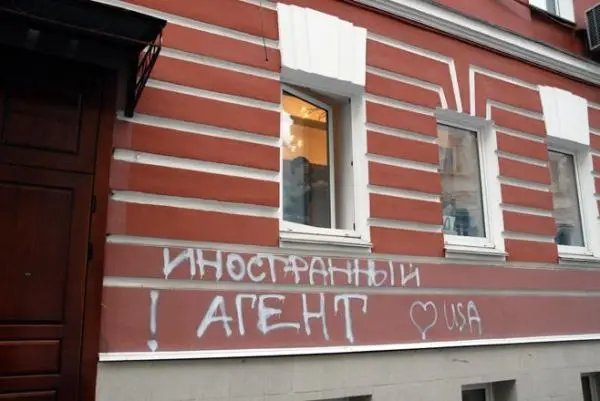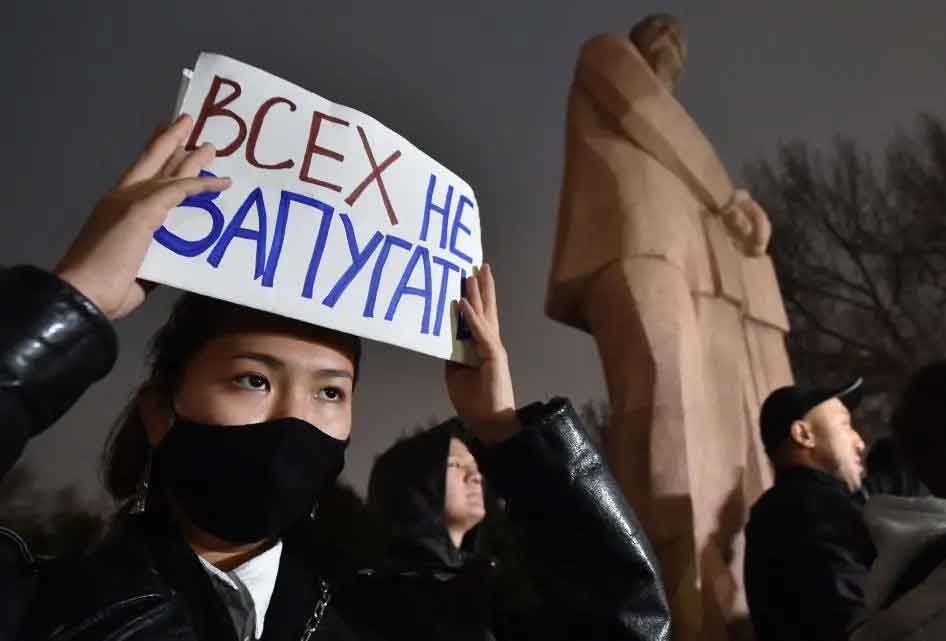Russia-style NGO crackdowns spread as Europe dithers
Colin Stewart is a 45-year journalism veteran living in Southern…
Russia’s neighbors crack down on civil society under the guise of curbing ‘foreign influence’

Taking a page from Russia, two former Soviet Republics, Georgia and Kyrgyzstan, have introduced new “foreign agent” laws that crack down on the activities of non-governmental organizations that are critical of the government. In all three states, NGOs that promote LGBTQ rights have come under scrutiny from government for alleged foreign influence.
In this commenary, originally published by Human Rights Watch, HRW’s advocacy director for Europe and Central Asia Iskra Kirova explains what’s at stake in these countries and what Europe can do to promote freedom, transparency, and human rights abroad.
By Iskra Kirova
Georgia’s ruling party plans to reintroduce highly controversial Russia-style “foreign agent” legislation aimed at incapacitating civil society and independent media.
If adopted, the laws, which were withdrawn last year in the face of massive protests, would require foreign-funded nongovernmental organizations and media to register as “agents of foreign influence”. That would make them subject to additional scrutiny and sanctions, including criminal penalties. Authorities claim the laws promote “transparency,” but their statements make it clear the laws will be used to stigmatize and punish critical voices.
Georgia was granted EU candidate status in December 2023 on the understanding it would improve conditions for civil society. This move risks derailing its EU integration even if the EU has until now been willing to move the country forward in the accession process despite limited progress on EU reform priorities.
Georgia’s defiance of the EU on its civil society commitments isn’t so surprising when seen in the regional context.
Copycat Russian law passed in Kyrgyzstan
The day before Georgia’s announcement, Kyrgyzstan’s president signed an abusive “foreign representatives” law. Copied almost entirely from the Russian equivalent, the law would apply the stigmatizing designation of “foreign representative” to any nongovernmental organization that receives foreign funding and engages in vaguely defined “political activity.” The bill had been widely criticized after its initial submission in November 2022, including in a urgency resolution by the European Parliament.

The EU had ample opportunity to press the authorities to reject this bill. Kyrgyzstan benefits from privileged access to the EU internal market tied to respect for international human rights conventions: conventions this law clearly contravenes. The country is poised to sign an enhanced partnership agreement with the EU that centers democracy and fundamental rights. The EU has been silent on whether these deals would be imperiled by the bill’s adoption, despite the fact the European Commission’s own assessment highlighted Kyrgyzstan’s dire environment for civil society and the country’s breach of its obligations.
The latest spate of curbs on civil society comes in the wake of the European Commission’s December 2023 legislative proposal for an EU Directive on “transparency of interest representation” that would create a register of organizations which receive foreign funding. European civil society vehemently opposes the proposal because it risks shrinking space for independent organizations at home and diminishing the EU’s credibility in opposing such laws abroad. Yet the Commission forged ahead. On the same day the proposal was adopted, Hungary’s parliament approved a law that gives a government-controlled body broad powers to target civil society and independent media.
With civil society organizations under threat throughout Europe and Central Asia, we need an EU that in words and actions protects civic space and sets the right standards.
More from Erasing 76 Crimes:




Move over, queer suffering. It’s time for queer joy.